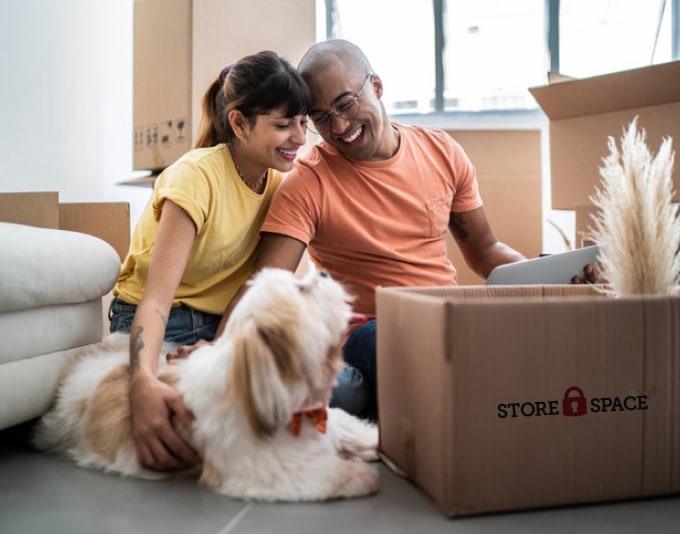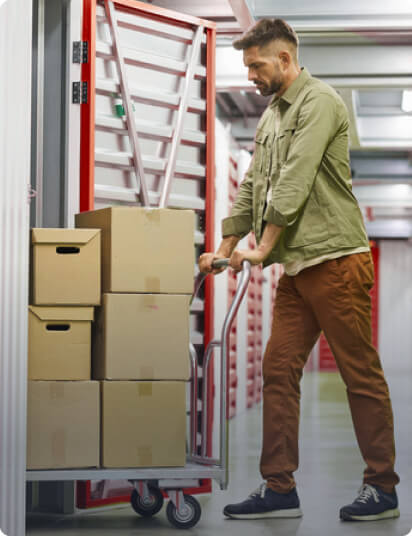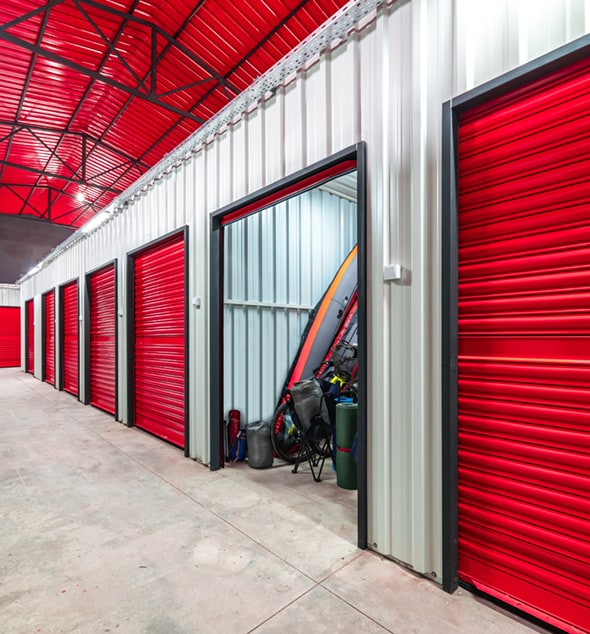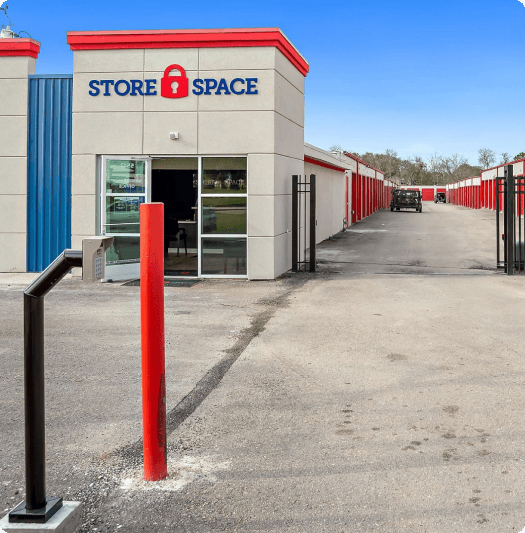11 Moving Essentials You Can't Forget For an Awesome Move

After a long, long, day of packing and moving, the last thing you want to do is to run to the store or rummage through boxes because you forgot to pack your moving essentials separately. Where is your toothbrush hiding? Did you really forget toilet paper? Or, in the middle of the night when you’re finally ready to catch some shut-eye, you don’t want to ask yourself, “what box are the sheets in?”
Not to worry—we’ve got it under control. We put together a downloadable/printable moving checklist of items you don’t want to forget on moving day that are essential. Plus, if you need a little more room, Store Space has plenty. Just rent a storage unit from us, and make your move that much easier.
FREE Moving Essentials Checklist
Download our moving essentials checklist in PDF format to use on your phone, laptop, or print it.
11 Moving Considerations
- How clean is your new home?
- Your own pillow is always comfier.
- Everyone has to eat.
- Did someone bring toilet paper?
- Don’t forget your PJs.
- A flashlight is a necessity.
- You never know when you’ll need a bandage.
- Pets need snacks too.
- Uh oh, your phone died.
- Don’t lose your ID.
- Protect your valuables.
1. Cleaning Supplies
It’s always a good idea to pack a cleaning kit for moving day. Unless you had access to your home before moving in and have already given it a deep clean, you’ll need to tidy up before you bring in your furniture and boxes. You never know how clean your new home really is until you start looking closely! Keep rubber gloves, sponges, an all-purpose cleaner, rags and paper towels in your cleaning kit.
Pro tip: If you want to be extra prepared, you can also bring a broom, dustpan, mop and bucket to make your floors extra shiny before settling in. Here are some tips to deep clean your new home!
2. Bedding
Bedding may seem obvious, but it is a moving essential that’s easy to forget. Even though bedding and pillows can take up a lot of room, you’ll sleep much better with your own pillow! Plus, you don’t want to head to the store late at night because you can’t find the bedding box.
Pro tip: save a set of sheets, pillowcases and a few blankets for your essentials kit. But use your extra sets for wrapping up delicate vases, glasses or even mirrors! Who needs bubble wrap when you could use a blanket? (Unless you have a lot of blankets, you’ll probably need some bubble wrap, too.)
3. Kitchen Goods/Snacks
Food is one of the most important moving essentials! Chances are there is a pizza place nearby that can deliver or a drive-thru down the street, but while you’re in the middle of moving it’s a good idea to have snacks on hand. Bring things like granola bars, fruit or trail mix, and lots of water.
You’ll also want to bring either dishware or paperware including a few plates, bowls and cups. If your belongings will take a short while to get to your home, make sure you have a good multi-purpose pot or pan, too.
Pro tip: Pizza is the accepted currency for paying back friends if they help you move, but don’t forget about your pro movers. Buying them lunch or having bagels on hand will go a long way toward building rapport with the people you’ve entrusted to handle your valued possessions.
4. Bath Essentials/Toiletries
Toiletries are definitely moving essentials—everyone needs to brush their teeth! It’s also a good idea to keep things like saline solution, medications and shampoo/conditioner with your other necessary toiletries.
Pro tip: don’t forget toilet paper! Bring a shower curtain, hand soap, hand towels and bath towels, too.
5. Change of Clothes (and PJs!)
You don’t want to be stuck wearing your dirty moving clothes forever! Bring an extra change of clothes and a pair of PJs. You’ll feel much more refreshed in clean clothes.
6. Toolkit
Don’t forget a toolkit. Before you claim that you won’t need one for a few weeks, think about it. Do you have any furniture you’ll need to assemble? Are you sure your couch will fit along the shorter wall? Basic tools like a hammer, screwdriver, tape measure and even pliers can come in handy.
You’ll most definitely need a boxcutter—duh. It’s a smart move to have a flashlight on hand, and a roll of duct tape is always useful.
Pro tip: check out this list of things to include in your toolkit.
7. First Aid Kit
Moving can be a little chaotic, and the last thing you want is to get a cut unpacking and be stuck with no bandages. You never know when you’ll need one. Create (or buy) a first aid kit with a variety of bandages, gauze and ointments.
Billy Kornfield, owner of Camelot Moving & Storage, suggests keeping your first aid kit stocked with rubbing alcohol, antibiotic cream and any medications that may be useful on moving day (including prescriptions and everyday medicine like ibuprofen for aches and pains).
8. Pet Food (and Accessories)
Don’t forget the needs of your furry friends! Obviously, you’ll want to bring their food, along with bowls and any medications they have to take. Remember their leash and of course a few toys and treats!
9. Chargers and Batteries
Make a point to remember your electronics chargers. You don’t want your phone to die on move-in day (how will you order pizza?)! You’ll want to bring any laptop or tablet chargers, along with charging devices for your Bluetooth speakers, watch, headphones, etc.
According to Axel Hernborg, a travel researcher and the CEO of Tripplo, you should also bring a power bank for your devices. Just in case you’re far from an outlet, the power bank will keep your phone alive until you can plug it in.
Pro tip: who uses batteries anymore? Well, your TV remotes, flashlights and some clocks still need them! But you want to be careful packing batteries. Check out this blog for battery packing tips.
10. Important Documents
Chances are you won’t even think about packing your driver’s license or lease agreement in a random box, because you may need them. But documents like your social security card, birth certificate and passport are also moving essentials that should be kept in a safe place. We suggest keeping them with you!
11. Valuables
Just like those important documents that should be always kept near you, you’ll also feel better if you keep any valuables like jewelry, accessories or family photos with you. (This prevents anything from getting damaged, too.)
FAQs: Moving Essentials You Can’t Forget
Q: What are the necessities when moving?
A: When moving, you should have the essential items included in this blog. You’ll want to bring cleaning supplies, bedding, bathroom and kitchen essentials, chargers, a first aid kit, toolkit and snacks.
Q: What should you not pack when moving?
A: There are a few things you shouldn’t pack when moving, including lighter fluid, fertilizer, car batteries and flammable or explosive items.
Q: What should I pack last?
A: You’ll want to pack your moving essentials last. So, make sure you wait to pack documents, toiletries, your toolkit and first aid kit, chargers, bedding and more. Just read this list for more items you should pack later on in your move.
Q: When should you start packing to move?
A: You should probably start packing about 2-3 weeks before you plan to move into your new place. But you should start planning your move at least 2 months in advance.
Wrapping Up: Moving Essentials
Packing and moving can be stressful—that’s why Store Space is here to give you a hand. While you’re moving, get more space with us.
Find even more tips about moving in our blog 9 Helpful Moving Tips to Make Moving-In Easy. Or, rent a unit today! Just use our storage location finder to locate your nearest location.








